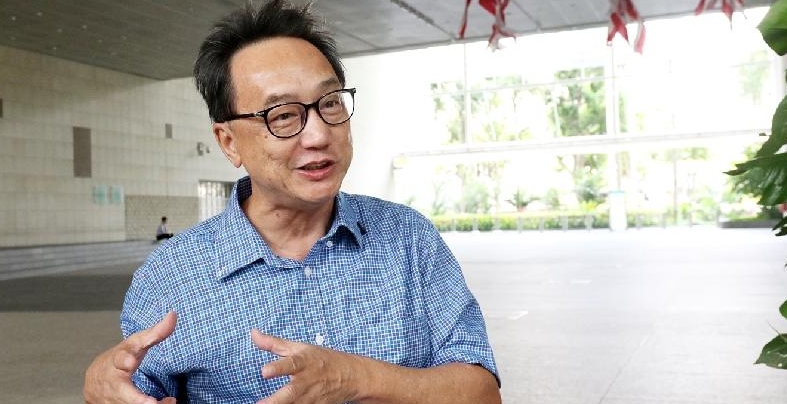For 65-year-old freelance media personality Pan Cheng Lui, he still feels a sense of affinity for Malaysia which Singapore was once a part of, despite the fact he was born and raised in the island state. Such feeling will not change with the differences in the two countries' economy or politics.
To him, cultural exchange is an acceptable way and there have been many such exchanges between the Malaysian and Singaporean societies.
"Occasional hiccups in the relationship between Malaysia and Singapore are unavoidable, but the feeling is like a fast flowing river that has never ceased a moment.
"For example, during the tomb-sweeping festival, many people travel across the Causeway to Malaysia to pay respect to their departed ancestors."
Pan went on to say that Singapore and Malaysia have moved in very different ways since their separation. To him, Singaporeans do not keep their traditional Chinese culture as well as their Malaysian cousins mainly because the city-state is a highly developed country that constantly moves in the fast lane.
"Moreover, Singapore has adopted a single education stream since the 1980s with English as the primary language, followed by the mother tongue as second language.
"This results in the disparity in the inheritance of our mother tongue in the two countries."
Singaporeans born during the baby boom years still prefer Mandarin Chinese as their main medium of communication, while the new generation primarily speaks only English.

New lease of life for dying tradition
On the Chinese community standpoint, Singapore's government is playing a dominant role in determining the republic's policies with regard to the community, such as the Chingay festival and River Hong Bao event during Lunar New Year celebrations. Whereas in Malaysia, such events are mainly organized by the local Chinese community, with lesser government participation.
Compared to China, Pan said both Singapore and Malaysia have done pretty well preserving the ethnic rituals and customs. However, he said this should be enlivened with creativity and energy, citing the example of the 24-season drum which has not only thrived in Malaysia but has also become increasingly influential in Mainland China.
He nevertheless lamented that many clan associations in Singapore are on the brink of closing down as such a tradition is no longer embraced by the younger generation.
The more recent years have seen the emergence of wedding planning companies offering traditional Chinese bridal set-ups and packages to keep a dying tradition alive through modern-day commercialization.
As Singapore is fast moving into an aging society, Pan feels that senior citizens should equip themselves with the necessary skills and technology in order to move in tandem with the time.
"Industrial 4.0 is an unstoppable trend now. Singapore is a very small country that is heavily influenced by the world outside and we cannot afford to stay behind the time."
Need to be more receptive
Singapore has seen several immigration tides in its history and to Pan, these can be divided into "traditional" and "non-traditional" sources, with the former referring to Malaysians working in Singapore and the latter to new sources of migrant workers such as India and China.
"Such immigration tides have exerted certain extent of pressure on Singapore. There was a significant social outcry several years ago with a sudden surge in the number of Chinese nationals living and working here."
He said the government subsequently adjusted its policy through publicity and education. Singaporeans have begun to accept this phenomenon while migrants have slowly assimilated themselves into the local society.
Like any other major world cities, Singapore needs a sizable pool of talented people in order to lift the country's overall competitiveness. Being small means Singapore cannot afford to be xenophobic but must be more accommodating.
"It is perfectly normal for people to be exclusionary in any country or culture for fear their own interests will be eroded. Nevertheless, Singapore needs to be more receptive and tolerant towards others."
ADVERTISEMENT
ADVERTISEMENT


































